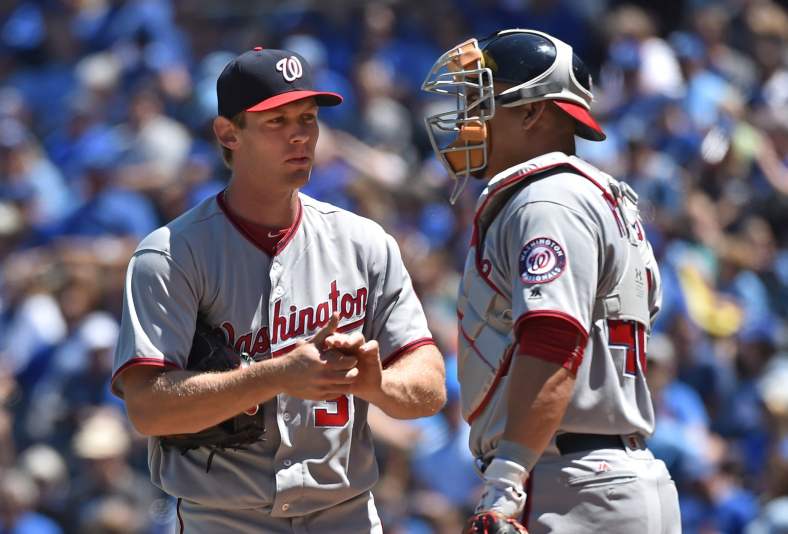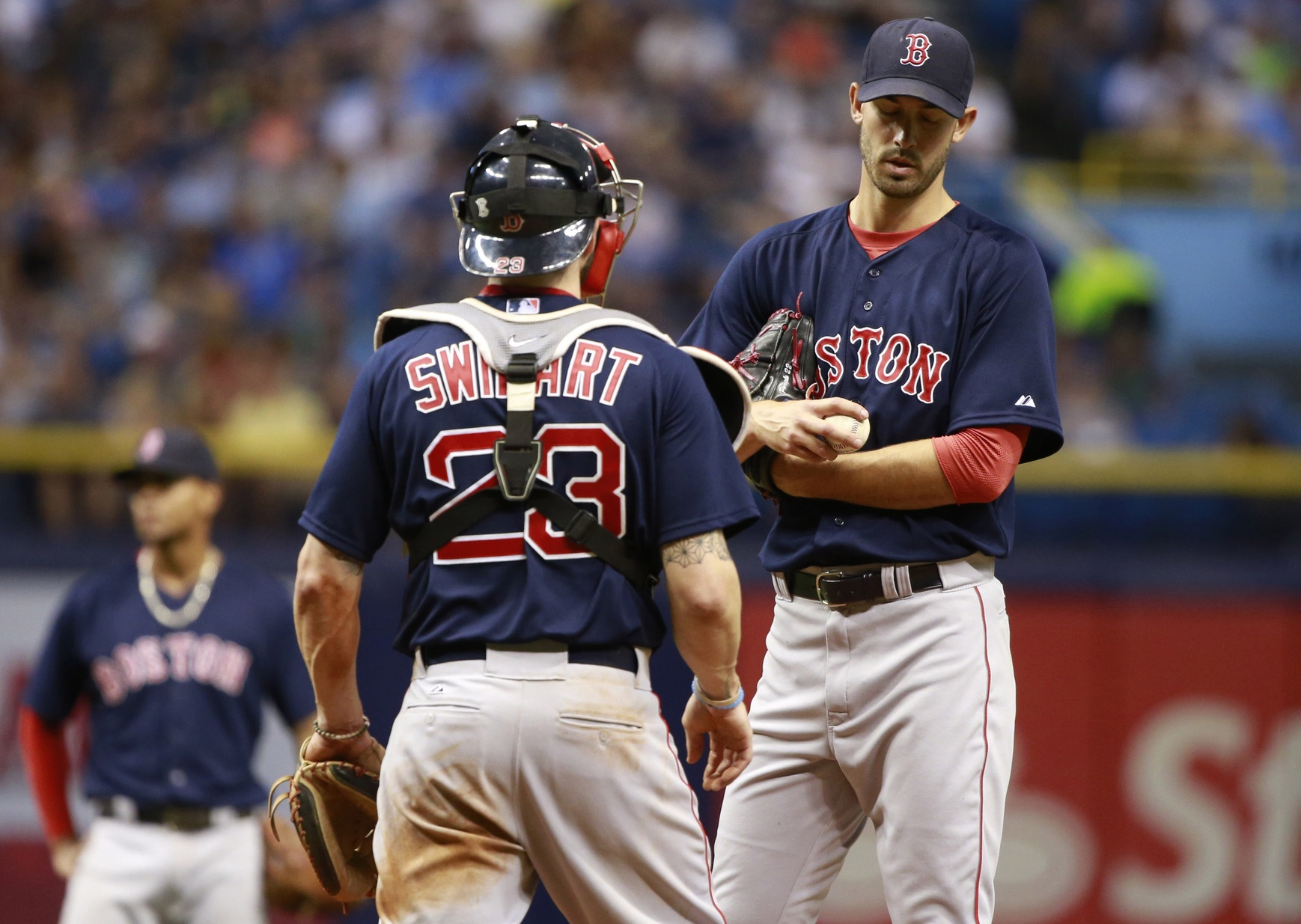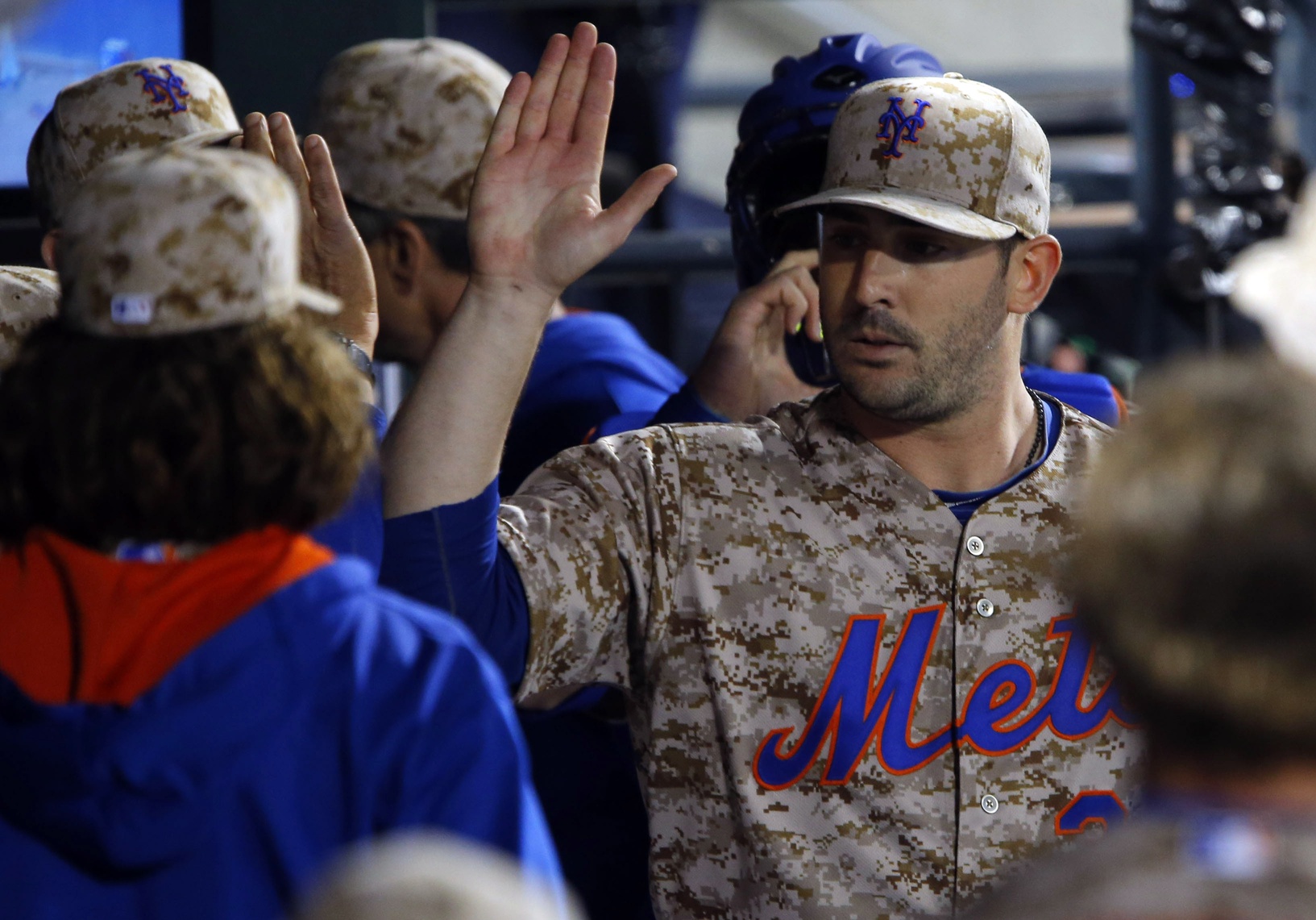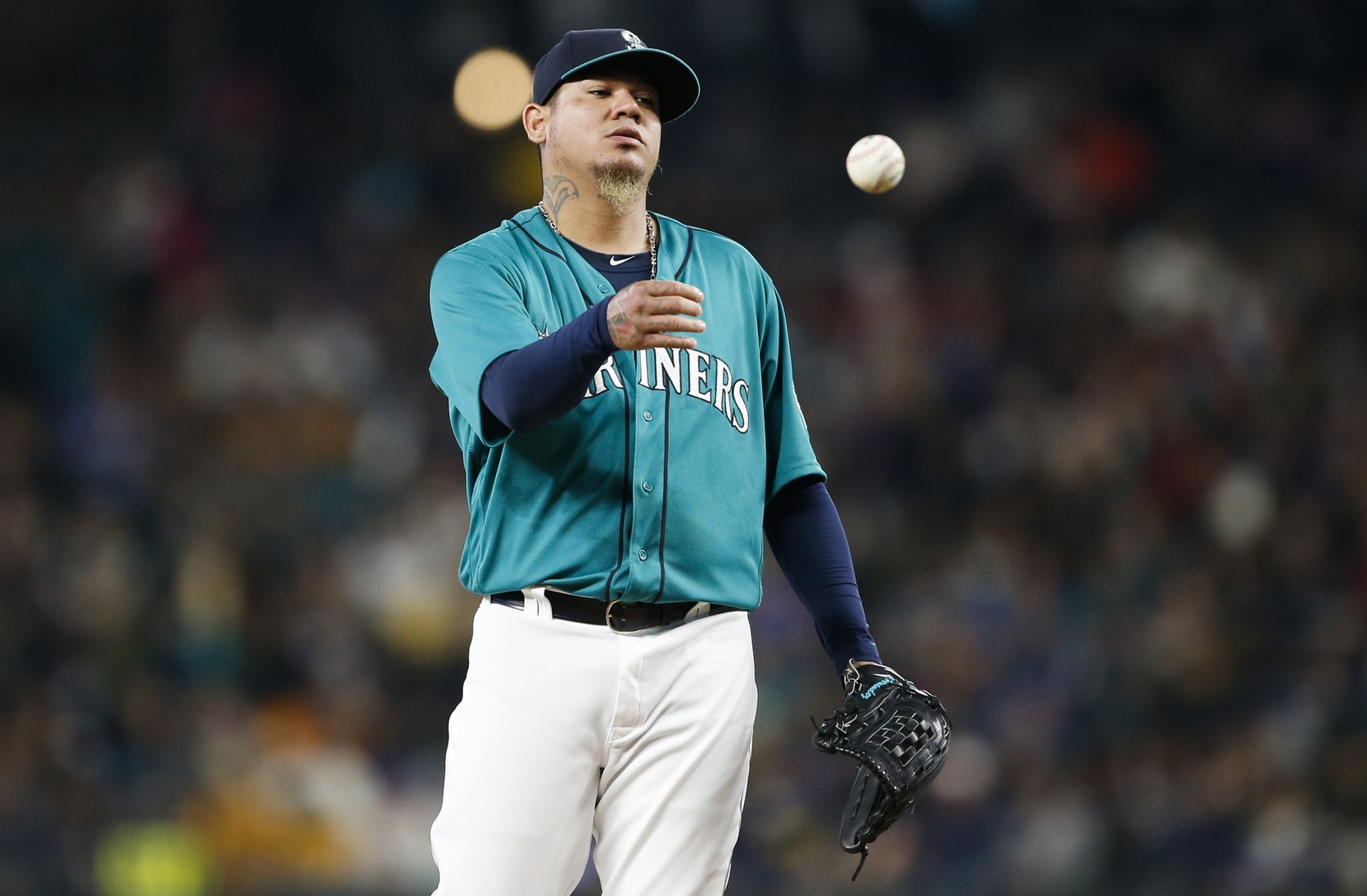
The postseason brings us the best time of the year on the baseball calendar. If you’re a fan of one of the MLB playoff contenders, it’s both the best and most stressful time. There’s nothing quite like watching your team on an extended playoff run. Conversely, there’s nothing quite so bad as watching that run end.
That, of course, is the fate for all but one team. But what will bring about that end?
What should make you most worried about your favorite team? Or, if you prefer to be positive, what weaknesses does your favorite team have the best chance of exploiting against its potential opponents?
What is the most glaring flaw for each MLB playoff contender?
Note: All stats are accurate through the games played on Monday, September 26.
Boston Red Sox: Uncertainty

With the possible exception of the Cubs, this may be baseball’s most complete team. There’s nothing particularly alarming about them. Instead, a handful of questions should leave the Boston faithful concerned.
Is Rick Porcello really a front-line starter? He had a great year, but it came out of nowhere. Pitching in the playoffs is a different animal.
Can David Price come through in the postseason? He’s struggled in past Octobers. Granted, that’s a small sample size that could even itself out. But will it?
How will the young Red Sox hitters respond to the postseason pressure? In David Ortiz, Dustin Pedroia, Hanley Ramirez, and maybe Pablo Sandoval (amazingly), Boston has plenty of postseason experience in its bats. But it’s also relying a lot on youngsters like Andrew Benintendi, Jackie Bradley Jr., Mookie Betts and Travis Shaw. How will the October limelight meet them?
The Red Sox are an uber talented team. But they do enter October with some doubts.
Chicago Cubs: Over dependence on the walk
Don’t mistake this for saying that the Cubs can’t hit. They clearly can.
Still, the numbers don’t lie. The Cubs have the second-highest OBP in MLB, and it’s clearly aided by their high walk total in a significant way.
Do the Cubs rely too much on the walk? pic.twitter.com/Z0aAql20LN
— Sportsnaut (@Sportsnaut) September 27, 2016
When thinking of the sabermetrically driven teams that have struggled in the playoffs (like the Oakland Athletics), this is a common theme.
In the regular season, relying on the walk is fine. You’re often facing an opponent’s No. 4 or No. 5 starter. And if you can draw a lot of pitches out of the staff, you may get deep into the bullpen as well. Bad pitchers tend to have bad control.
In the playoffs, that’s not such a luxury.
First, of course, the teams are better. Naturally, better teams have better pitchers.
Second, the frequent off days allow teams to push their best starters and relievers out more. This means opponents generally aren’t seeing the pitchers more prone to high walk totals.
In a short series, relying too much on the walk leaves a team vulnerable to a few pitchers getting hot and shutting down the lineup. That’s certainly something that Chicago has to be concerned with.
Texas Rangers: Pitching
Generally speaking, playoff teams with pitching problems are a little more specific. They either struggle in the bullpen or they struggle with the starters. The Rangers break the mold as a playoff team with pitching problems throughout the staff.
Can Rangers pitchers be depended on to get the big outs in October? pic.twitter.com/6pnN8f9Jrb
— Sportsnaut (@Sportsnaut) September 27, 2016
It would be difficult, but a National League team might get away with this. In the American League, though, there are too many teams with explosive offenses.
That’s going to put a lot of pressure on the Texas’ offense to keep up. A slugfest against a team like the Orioles, Blue Jays or Red Sox isn’t exactly a winning proposition. This is especially true when your team doesn’t pitch well.
Washington Nationals: Injuries
The injury bug has hit Washington at the absolute wrong time.
Catcher Wilson Ramos is out for the year. The loss of Ramos’ bat negatively impacts the offense. The loss of the starting catcher will also add an adjustment period for the pitching staff.
Stephen Strasburg and Daniel Murphy have both been hobbled for a while. Strasburg will likely miss the NLDS. Murphy will certainly make the playoff roster, but it’s fair to wonder how sharp he’ll be.
Lastly, while Washington may deny it, Bryce Harper is clearly not himself. In truth, he’s looked off for a good portion of the season.
In the second half, the reigning NL MVP is slashing at .228/.337/.379 with only five home runs. If he’s not hurt, then the Nationals might have a more serious concern to deal with.
That is an awful lot to overcome at any time. In October, it’s even tougher.
Cleveland Indians: Starting pitching depth
With the possible exception of Washington, it’s hard to imagine a playoff team that can play the “if” game more than Cleveland this year.
If Carlos Carrasco and Danny Salazar were healthy, this team would have the best starting pitching in the American League. In the playoffs, good pitching usually beats good hitting. Who knows how far that rotation could have taken the Indians?
Unfortunately, neither man is healthy. The news got not no better on Monday, when Corey Kluber exited his start with right groin tightness.
A team can overcome an injury to one starter, but three? Even if Kluber returns healthy, the injuries to Carrasco and Salazar still leaves 50 percent of the Tribe’s playoff starting rotation on the shelf.
Given the offenses that will be featured in the American League Playoffs, Cleveland is going to be fighting a steep uphill battle while it pieces a replacement staff together.
Los Angeles Dodgers: Starting pitching
The Dodgers’ bullpen has plagued this team in past postseasons. This year, the starting pitching is the big concern.
Clayton Kershaw is great. What about the rest of the Dodgers' starters? pic.twitter.com/6v1dobAAXg
— Sportsnaut (@Sportsnaut) September 27, 2016
Really, we have to be at least somewhat worried about Kershaw as well.
He’s pitched only four times since missing more than two months of the season. While his numbers have been spectacular, the fact that Kershaw hasn’t thrown more than 91 pitches in a game since returning is notable.
The bullpen is good, but it can’t be overused. Kershaw going deep in games can prevent it from being overused. If he’s struggling to throw 100 pitches, however, going deep in a game is a challenge.
In past years, Kershaw and the Dodgers have had fellow ace Zack Greinke to depend on. Greinke isn’t there anymore, the rest of the starting rotation is a question and Kershaw hasn’t really shown that he can go deep in games yet.
Toronto Blue Jays: Strikeouts
The Blue Jays can hit the long ball.
.@JoeyBats19 just tied this game up.
WOW: https://t.co/Xk44fNzrTn pic.twitter.com/eD3QKCQ4Lz
— MLB (@MLB) September 21, 2016
Unfortunately, Toronto’s hitters have the seventh-most strikeouts in baseball. If a team that strikes out goes on to win a World Series, it will be breaking a trend.
The postseason does feature better pitching. Generally, those pitchers are more capable of issuing strikeouts and less vulnerable to cough up the pitches that end up in the bleachers.
None of that is to say that power hitters have no place in the playoffs. Still, power hitters are more vulnerable to striking out. If that’s happening to the power bats of Toronto, then the home runs Jose Bautista, Edwin Encarnacion, Josh Donaldson, and company hit not only come less often, but will likely be solo shots. Generally speaking, opponents can overcome those.
New York Mets: Starting pitching depth

In many ways, the Mets are the National League’s version of the Indians. The difference is that the Indians are not only already in the playoffs, but in the division series.
New York, however, is in a three-team race for two Wild Card spots. The Mets may have to play two different one-game playoffs just to earn a spot in the wild card Game. Of course, that’s also a one-game playoff.
That’s a tough enough task to overcome. Unfortunately, it doesn’t stop there.
Who is going to pitch these games for New York? Logically, Noah Syndergaard would take one of those assignments. But he’s scheduled to pitch the regular season finale on Sunday.
If that game is meaningful, he won’t be back and on full rest until the following Thursday. Bartolo Colon is scheduled to pitch the day before, so wouldn’t likely be available until Wednesday or maybe Tuesday on short rest.
Matt Harvey, Jacob deGrom and Steven Matz are done for the year. All three played prominent roles in the Mets making the 2015 World Series. The struggles of the wild card competitors may keep New York in the playoffs. But it’s hard to imagine that this pitching staff will send this team on a deep run.
Baltimore Orioles: Over dependence on the home run
Nobody can match Baltimore’s proficiency with the long ball. They lead the league with 245 home runs, 28 clear of the second place Blue Jays. As a point of reference, Toronto is only 24 clear of the Cubs and Minnesota Twins, who are tied for 13th in the league.
With that kind of power, why is this team only 12th in runs scored?
The Orioles are 15th in batting average and 21st in OBP.
So, they have the same problem as Toronto, only it may be slightly worse. Even with fewer homers, the Blue Jays score runs at a much better rate.
As was the case with Toronto, it’s hard to hit home runs against better pitchers. It’s even more difficult to hit those home runs with men on base.
Somehow, Baltimore is going to have to break this trend. It will be tough to do that in such a short period of time.
San Francisco Giants: Everything but starting pitching
Looking at the likely postseason rotation of Madison Bumgarner, Johnny Cueto, Jeff Samardzija and Matt Moore, this team looks good. Heck, the Giants might even be able to make a run if they have to play a one-game playoff and the Wild Card Game.
But nothing else about this team indicates that it will come close to the even year magic it had in 2010, 2012 and 2014. The Giants struggle to score runs for those starters. Worse, once the starting pitcher is out of the game, no lead is too safe for the bullpen.
JR de 3 carreras de @Ryan_Schimpf da la ventaja a #LosPadres.#PorSiTeLoPerdiste en español: https://t.co/2H5R5fXxGi pic.twitter.com/m28JMYnQIm
— Padres de San Diego (@LosPadres) September 14, 2016
San Francisco, the Mets and Cardinals are all playing mediocre baseball. Interestingly enough, that’s leading to an oddly exciting playoff race. The Giants could emerge from that group. But it’s difficult to see this team beating Chicago, then either Washington or Los Angeles.
San Francisco is just bad in too many areas.
Detroit Tigers: Bullpen
Nothing sinks a baseball team quite like a bad bullpen. Bad bullpens blow games that should be won. Bad bullpens turn close games into one-sided losses.
The Tigers have a bad bullpen.
Detroit’s relievers have the 24th-best ERA in the league, 21st-best WHIP and 27th-best K/9 ratio.
Let’s assume the Tigers make the wild card game without needing a one-game playoff.
For Detroit to win an American League pennant, that bullpen will somehow have to hold it together for a Wild Card Game, a division series, and a championship series. It can’t be stated enough that the bullpen will not only have to hold up, but it will have to hold up against some incredibly dangerous offensive teams.
Making matters worse, the Tigers’ starting rotation is nothing more than a middle-of-the-pack group. There won’t be any hiding this bullpen. It will be called upon.
St. Louis Cardinals: Overall starting pitching
If the Giants and Cardinals could combine teams, we may have one truly strong title contender. It doesn’t work that way, though.
It would be hard to favor St. Louis in a one-game playoff or Wild Card Game against New York or San Francisco. Bumgarner’s playoff exploits are well known at this point. Syndergaard in a must win game is one of baseball’s toughest assignments.
https://twitter.com/darenw/status/780944836715220993
Granted, that’s only one game where anything can happen. Still, the starting pitching would not favor the Cardinals.
After that would come a a date against the Cubs in the division series. The Cardinals’ starting pitching certainly doesn’t stack up to Jake Arrieta, Jon Lester, and company.
It’s hard to imagine a scenario where the lack of starting pitching won’t catch up with St. Louis. More likely than not, it will happen early in the playoffs — assuming of course that the Cards even qualify.
Seattle Mariners: Front-line starting pitching

The poor Mariners haven’t quite lined the stars up over the last decade.
A few years ago, this team had great pitching. Felix Hernandez took a backseat to nobody and Hisashi Iwakuma was a solid No. 2. Unfortunately, Seattle never had the bats to compliment those arms.
Now, guys like Robinson Cano and Nelson Cruz supply plenty of punch for the Mariners. Unfortunately, King Felix and Iwakuma aren’t quite what they used to be.
To go on an extended playoff run, a team needs to at least have a great front line starter, or a great bullpen. Seattle is good in both areas, but not great.
Making the playoffs is still quite possible. But should the Mariners qualify, they will go into most games at a starting pitching disadvantage.
That’s a big problem in the playoffs.